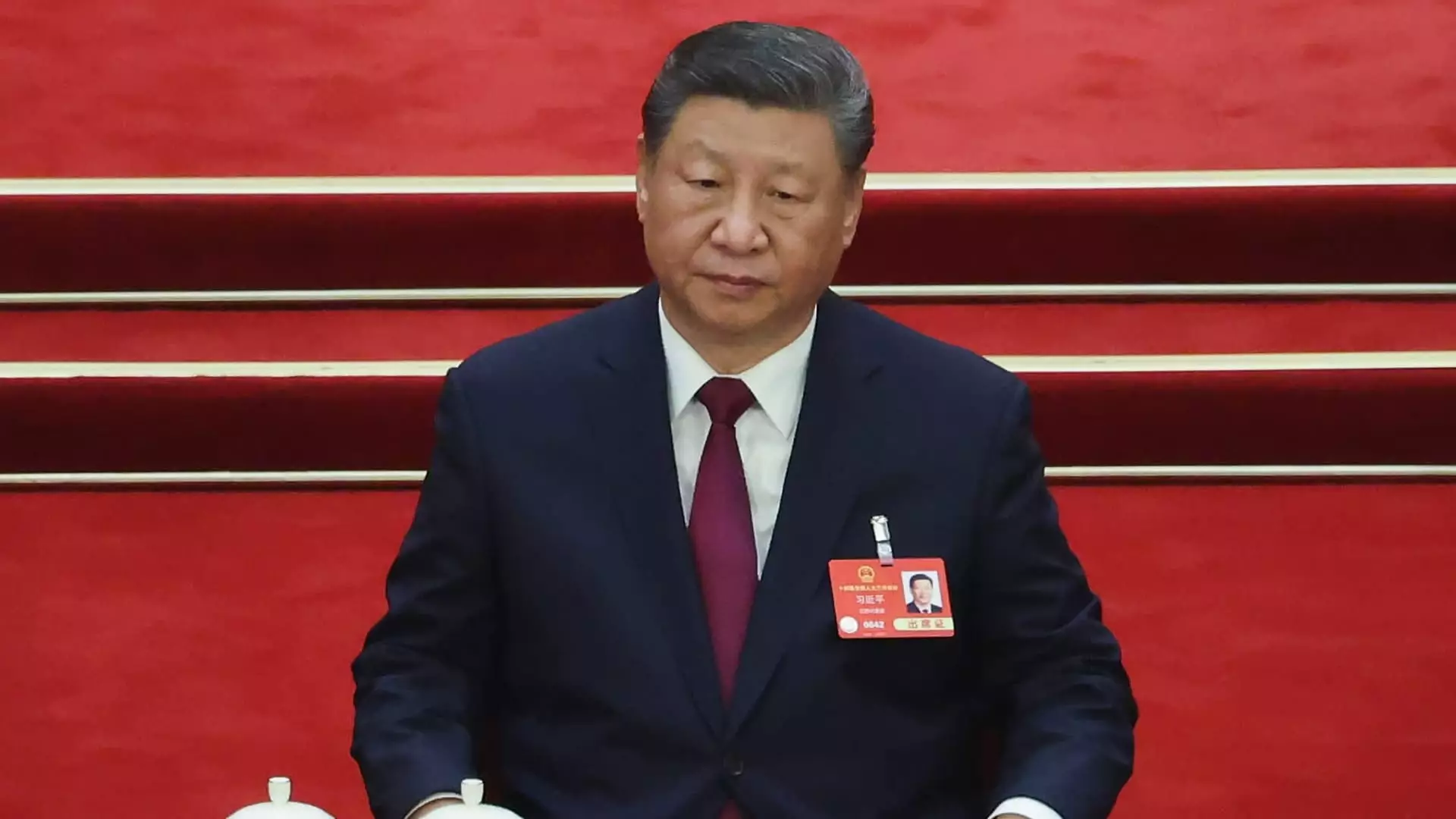In a bold and retaliatory move, China has escalated its trade war with the U.S. by hiking tariffs on American imports to an alarming 84%. This punitive measure comes as a direct response to President Trump’s recent decision to impose tariffs exceeding 100% on Chinese goods. The notion of tit-for-tat tariffs reverberates through the global economy, threatening the delicate fabric of international trade between the two economic giants. What is particularly troubling, however, is the apparent refusal of both sides to engage in constructive dialogue. Instead of seeking common ground, they seem determined to escalate the conflict into a full-blown trade war.
The latest increase represents a staggering leap from the already substantial tariffs in place and rings alarm bells for businesses and investors alike. U.S. exports to China totaled a hefty $143.5 billion in 2024, while imports skyrocketed to a distressing $438.9 billion. Such an imbalance highlights the stakes involved; it’s not merely a matter of political posturing but one that carries real consequences for economies, jobs, and investment strategies on both sides of the Pacific.
The Impact on Global Markets
The ramifications of this heightened trade tension have sent shockwaves through financial markets worldwide. Investors are on edge, fearing that the repercussions of the tariff hikes could lead to sluggish economic growth, rampant inflation, and diminished corporate profits. In April alone, the S&P 500 receded nearly 20% from its peak, signaling a bear market and reflecting investor panic. Similarly, South Korea’s Kospi Index has entered bear territory, and stocks in Shanghai and Hong Kong have plummeted as uncertainty looms over future trading conditions.
The entire situation embodies a troubling paradox: while leaders trumpet the idea of “America First,” they simultaneously put both economies at great risk by refusing to consider the broader consequences of their actions. Short-sightedness in favor of nationalist rhetoric seems to have taken precedence over pragmatic economic policies and international cooperation.
The Hardline Approach
China’s decision to adopt such a hardline stance is noteworthy. While other nations like Japan entertain the possibility of negotiation amid these escalating tariffs, China appears unwilling to compromise or offer concessions. This dodgy dynamic raises questions about whether any meaningful dialogue can occur in the future. According to U.S. Treasury Secretary Scott Bessent, this approach is not only unmatched by any valid rationale but could ultimately prove disastrous for China.
The assertion that China is one of the “worst offenders” in the international trading system illustrates an entrenched viewpoint that could hinder future attempts at reconciliation. By viewing the situation through a lens of us-versus-them, policymakers risk permanent damage to international relations and trade partnerships. Instead of creating an environment conducive to negotiation, the current trajectory exacerbates tensions, alienates allies, and breeds distrust.
The Illusion of Economic Strength
Supporters of aggressive tariff policies argue that the U.S. has the upper hand in this conflict, asserting that China’s economy is notably imbalanced. Yet, what these proponents fail to recognize is that an imbalanced strategy can lead to equally imbalanced outcomes. It’s easy to underestimate an opponent when emotional rhetoric overshadows practical economic analysis. The truth is, long-standing trade relationships contribute to global economic stability. Compromises, rather than confrontations, yield far more fruitful outcomes for all parties involved.
Moreover, the broader implications of the trade war extend beyond immediate tariffs. When industries and markets begin to fear increased taxation, the ripple effects can deter investment and lead to job losses in sectors highly dependent on exports. The narrative championing protectionism can swiftly morph into a reality that endangers not just economic metrics but livelihoods across borders.
Ultimately, the trajectory of this trade war embodies a self-destructive attitude that could backfire on both the U.S. and China, along with the global community that depends on their economic interactions. Disregarding diplomatic channels not only forges a divide between nations but also nurtures an environment ripe for economic devastation. The stakes are higher than mere percentages; they encapsulate the very essence of international collaboration and progress.


Leave a Reply